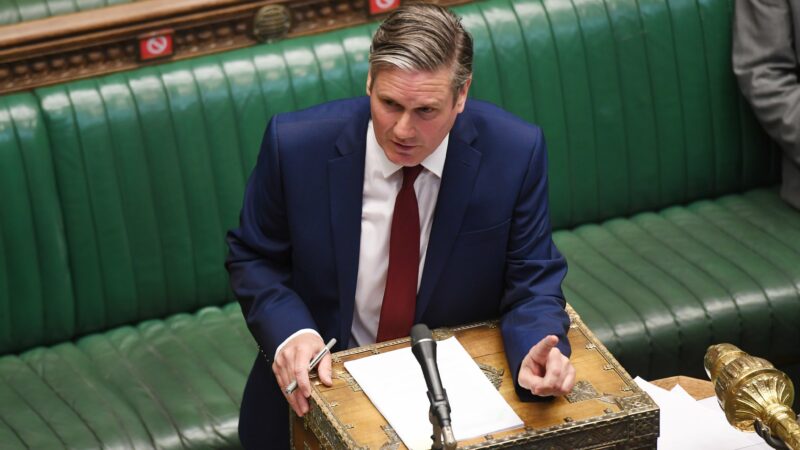
Keir Starmer began the latest Prime Minister’s Questions with a focus on institutional racism, following a week of further Black Lives Matter protests both in the UK and in the US as the police killing of George Floyd continues to infuriate people who want justice. As perhaps Labour’s most prominent black frontbencher, well-known for chairing an investigation – under a Tory government – into racial bias in the criminal justice system, David Lammy has been vocal on the need to “make this a moment of lasting change”. The Labour leader’s question was inevitable: when will the government implement the recommendations of both the Lammy Review and the Windrush report?
Boris Johnson didn’t even try to address the matter of the lessons learned review by Wendy Williams. On the Lammy recommendations, he claimed that they were being implemented – the number of BAME people in the prison service is being increased, as is the use of body-worn cameras. But the Prime Minister just doesn’t seem very troubled by black people making up 3% of the UK population but more than 12% of the prison population, nor the very immediate and ongoing concerns of people who say they are disproportionately targeted by police as evidenced by data. These issues could have filled up the whole of the PMQs exchange, and indeed it would have been a good idea for Starmer to do just that in a week when these problems have come to the fore.
However, the Labour leader did not stick to one subject. He moved on to grill Johnson on the Public Health England report on disparities (in response to which the PM name-dropped “Dido Harding”, increasingly his codeword for ‘I’m struggling’), the coronavirus death figures (which Starmer rightly said “haunt us”, before the cutting “there’s no pride in those figures, is there?” as a nod to the PM’s bold claim last week to be “very proud” of the UK response), and even the chaos around schools reopening (tricky for Labour as the leadership has been torn between Starmer’s instinct for wanting a swift return and the strong concerns of teaching unions, which has become another factional divide).
What we learnt from PMQs about the Tory strategy is that, as Johnson increasingly fails under the detailed scrutiny of the deeply disappointed Starmer, the Prime Minister has decided to try personal attacks. Like with Jeremy Corbyn, this is not Starmer’s style. But Johnson employs a ‘whatever works’ ethos. ”One brief one day, another brief the next,” he chuckled, suggesting that the QC is happy to flip-flop on policy. As David Allen Green remarked, this accusation comes from a man known to have written one Telegraph column for Remain and another for Leave.
We also learnt something about Labour’s evolving PMQs style. Starmer is using stronger language every week: no personal attacks, but stressing that “it’s time he took responsibility for his own failures”. We knew of this development last week, though. The truly novel feature of Labour’s PMQs approach is that Starmer proactively mentioned the Welsh Labour government, and did so to hold up its actions as a good example (on schools reopening and free school meals over the summer). In the past, the record of Welsh Labour has been used by the Tory Prime Minister to attack the opposition leader. If this reversed dynamic can be attributed to a better working relationship between UK Labour and Welsh Labour, that is very good news indeed.




More from LabourList
Turning the page? Labour’s recovery in the polls show a path to 2029 victory
Restoration announce recommendations for NEC candidates
‘Factionalism at the top is weakening Labour – and handing a gift to Reform’